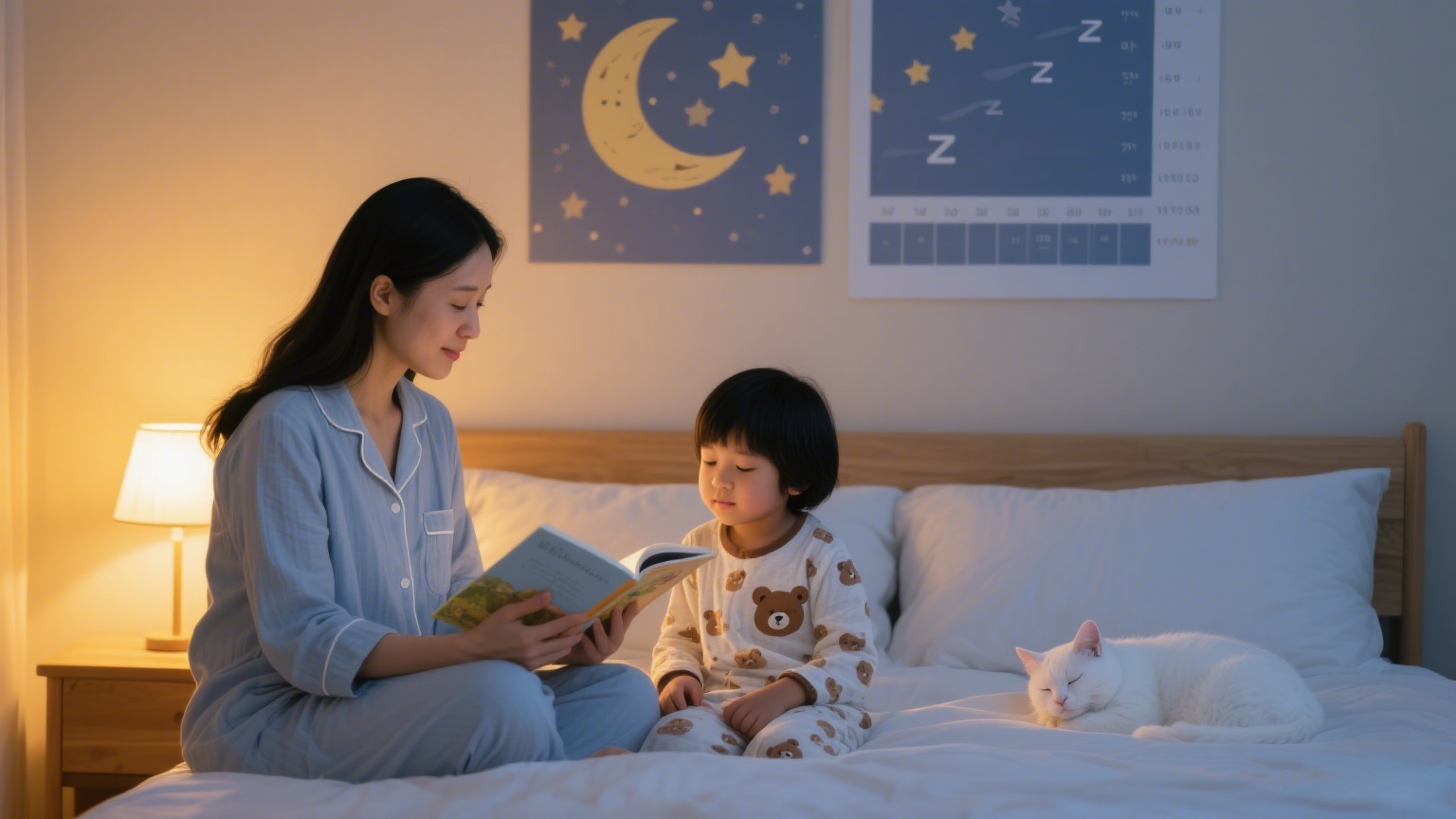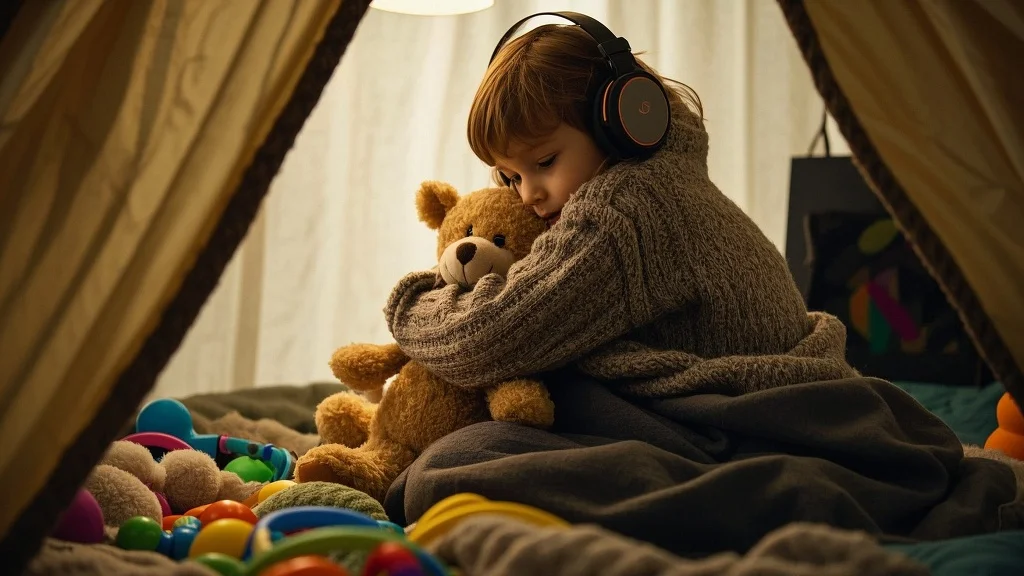Why Independent Sleep Matters
Preschoolers need 10-13 hours of sleep daily. Establishing self-soothing skills:
✔️ Prevents bedtime battles
✔️ Boosts focus & behavior (sleep deprivation mimics ADHD symptoms)
✔️ Sets lifelong healthy sleep habits
3 Proven Methods to Try
1. The Consistent Return Approach
- How:
- Tuck child in and leave
- If they get up, calmly say “It’s bedtime” and guide them back
- Repeat without engaging in conversation
- Best for: Strong-willed kids who test limits
- Tip: Use a baby gate if they repeatedly leave their room
2. The Gradual Retreat Method
- How:
- Sit near their bed until drowsy (Night 1)
- Each night, move your chair farther toward the door
- Eventually sit outside until they fall asleep
- Best for: Anxious children who need proximity
- Tip: Bring a book to avoid eye contact
3. The Interval Check System
- How:
- Check after 5 minutes, then 10, then 15
- Keep visits brief (“I’m here. It’s sleep time.”)
- Extend intervals until asleep
- Best for: Most families as a gentle middle ground
Bedtime Mistakes to Avoid
🚫 Screen time within 1 hour of bed (blue light disrupts melatonin)
🚫 Sugar or heavy meals before bed (opt for light snacks like bananas)
🚫 Overstimulation (rambunctious play, scary stories)
🚫 Caffeine (hidden in chocolate, some teas)
The Power of Routines
A 20-30 minute wind-down ritual signals the brain for sleep:
7:00 PM: Bath
7:15 PM: PJs + toothbrushing
7:20 PM: 1 story & cuddle
7:30 PM: Lights out
Pro Tip: Use visual charts with pictures for preschoolers.
Sleep’s Impact on Learning
Research shows sleep-deprived preschoolers struggle with:
• Focus – Difficulty following multi-step instructions
• Creativity – Limited storytelling or art description skills
• Memory – Trouble recalling learned material
• Behavior – Hyperactivity mimicking ADHD
When to Adjust Your Approach
If no progress after 2 weeks:
• Reevaluate bedtime (overtired kids resist sleep more)
• Introduce a “sleep friend” (stuffed animal for comfort)
• Consult a pediatrician if insomnia persists
Remember: Consistency is key—most methods take 3-7 nights to show results.








